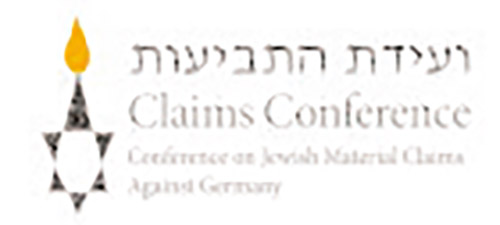
(Courtesy of Claims Conference) The Conference on Jewish Material Claims Against Germany (Claims Conference) has released a Netherlands Holocaust Knowledge and Awareness Survey, including a breakdown of millennial and Gen Z respondents, exposing a disturbing lack of awareness of key historical facts about the Holocaust and the Netherlands’ own connection to Holocaust history.
A majority of Dutch respondents (53 % of all respondents and 60 % of millennials and Gen Z) “did not cite” their own country as a country where the Holocaust took place. Although there were several transit camps in the Netherlands used to deport Jews to concentration camps, such as Auschwitz, more than half (59 % of all respondents and 71 % of millennials and Gen Z) could not name a single transit camp that was located in their country.
“Survey after survey, we continue to witness a decline in Holocaust knowledge and awareness. Equally disturbing is the trend towards Holocaust denial and distortion,” said Gideon Taylor, Claims Conference president. “To address this trend, we must put a greater focus on Holocaust education in our schools globally. If we do not, denial will soon outweigh knowledge, and future generations will have no exposure to the critical lessons of the Holocaust.”
One of the most iconic names associated with the Holocaust, Anne Frank, lived in hiding in Amsterdam during the Nazi occupation of the Netherlands. While most Dutch respondents (89 %) were familiar with Anne Frank, 32 % of millennials and 27 % of all adults surveyed do not know Anne Frank died in a concentration camp.
Greg Schneider, Claims Conference executive vice president, said, “One of the more troubling trends we continue to see in these surveys is the rise in numbers of people who believe the Holocaust was a myth or that the number of Jews murdered is exaggerated.”
While many of the identified gaps in Holocaust knowledge among Dutch adults are shocking, there is a clear desire for Holocaust education. Two-thirds (66 %) of Dutch respondents and a majority of Dutch millennials and Gen Z agree that Holocaust education should be compulsory in school. And, 77 % of all respondents say it is important to continue to teach about the Holocaust, in part, so it does not happen again.
Max Arpels Lezer, a Holocaust survivor from the Netherlands, said, “As a Holocaust survivor from the Netherlands, it is important to me that future generations learn about and understand the history of the Holocaust. I am upset and deeply concerned by these findings. That many of my countrymen do not even know their own national history. Without education, future generations will not understand the full impact of the Holocaust in my country. It is of utmost importance for us who survived that the future generations carry forward our testimonies even when we are gone.”
For more information, visit www.claimscon.org.











